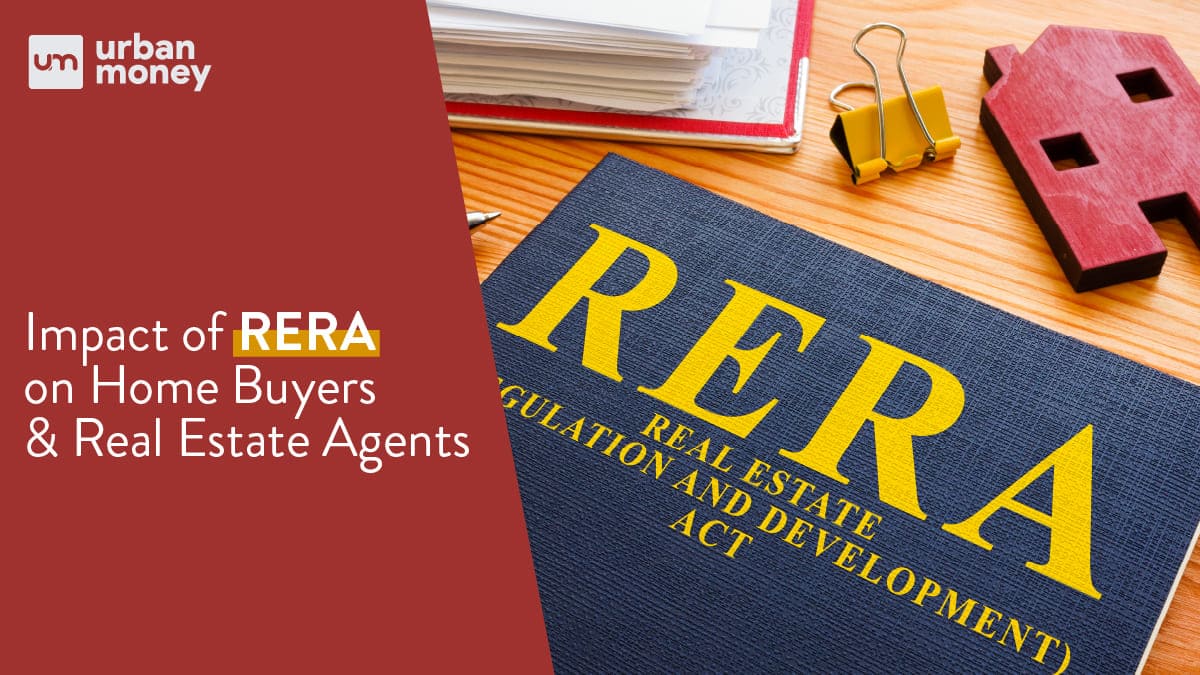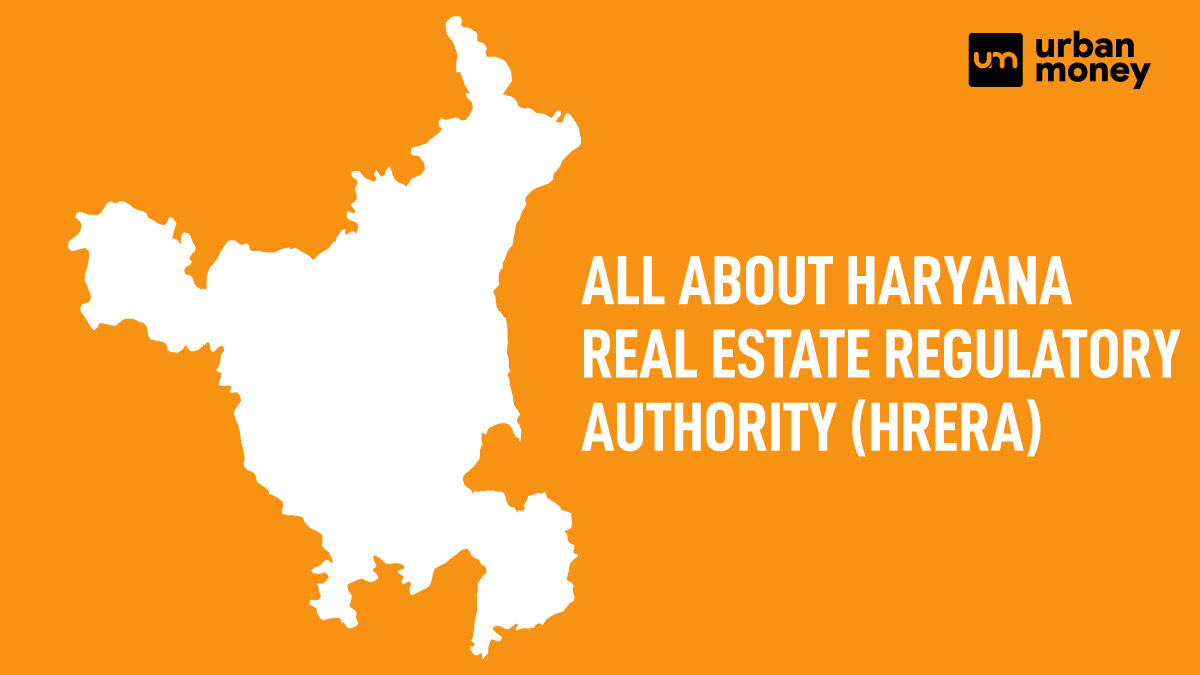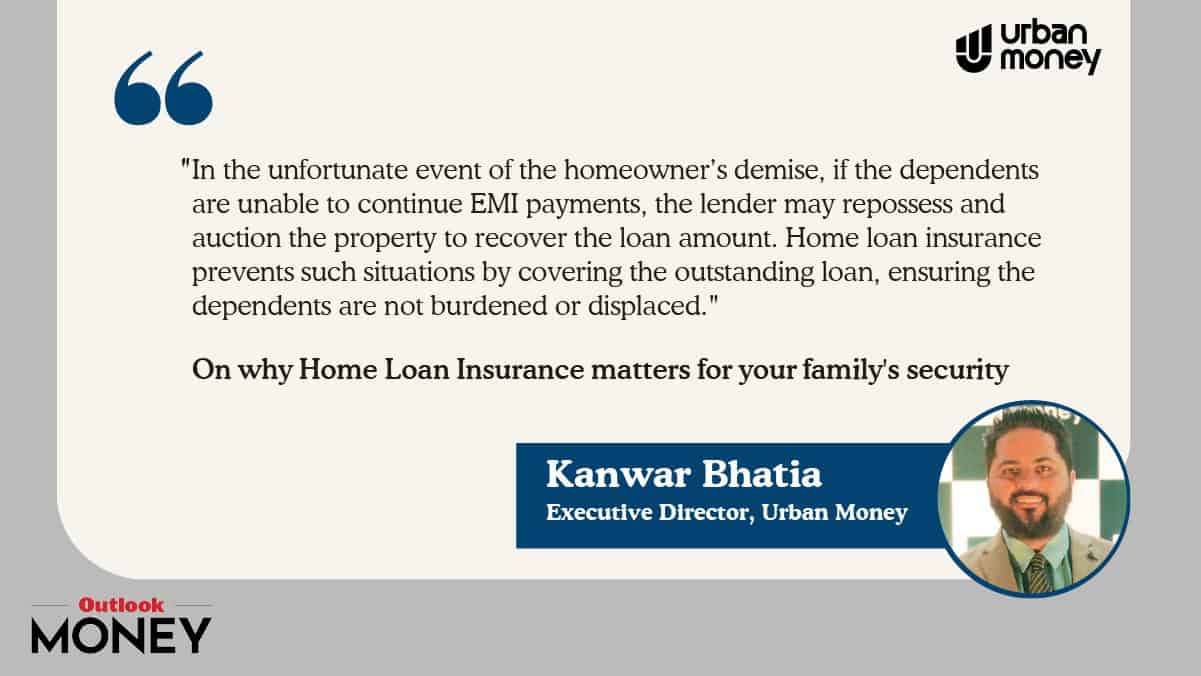Top 10 Best Private Banks in India List 2025
January 09, 2025
Home Loan Archive | Real Estate Regulatory Authority (RERA)

October 31, 2022


Fraud, misguidance, and misrepresentation have become common traits in every sector and real estate is no exception. Several buyers have filed complaints against the developers in the past decade looting them and not delivering the projects on time. Various real estate fraud cases, money laundering, false promises, etc., came to light. Plus, the lack of transparency between the developer and buyer was a huge issue. As a result, the government had to establish an authority to protect the interest of home buyers and real estate agents. The authority was named RERA (Real Estate Regulatory Authority).
Since its establishment, the real estate industry has changed drastically. Instances of developers fleeing away with investors’ money have reduced; since then, developers have delivered the projects on time. Keep reading this blog to know more about how RERA has transformed the face of the entire real estate market.
Table of Contents
ToggleThe Real Estate Regulatory Authority is RERA’s full form. The government introduced the authority to create transparency between home buyers and real estate developers. The RERA authority aims to mitigate issues and discrepancies in the real estate sector.
RERA is regulated by the Real Estate (Regulation and Development) Act, 2016. Under the RERA Act, the regulatory authority is formed in every estate to regulate the real estate sector. Moreover, the Act serves as an adjudicating body for the quick resolution of disputes. RERA has defined specific criteria for developing and building real estate to improve transparency in transactions in the real estate industry.
The body has offered various rights to home buyers and has also defined rules and regulations that the developers and builders must follow stringently.
The real estate sector is one of the leading revenue generators in India. Therefore, some transparent authority must check developers and transactions within the sector. RERA is one such regulation and the government established the authority to revive people’s confidence in India’s real estate market. It offers a common platform for developers and home buyers and mitigates the risks people have faced earlier.
The Real Estate Regulatory Authority is of utter importance as it applies to more than 76,000 companies across India. The act requires multiple things, such as registering real estate agents and projects, which are now compulsory. Today, buyers have all the right to know every basic detail of the real estate project they have invested in. Plus, they also have the right to obtain all the project-related documents.
RERA forms a state authority responsible for governing commercial and residential real estate transactions. It guarantees timely delivery of the project, which has offered a big sigh of relief to home buyers. Plus, it also ensures more precision between the buyers and developers, thereby establishing transparency.
The prime objective of this body is to scrutinise the realty estate industry and adjudicate any discrepancies associated with real estate projects. Given below are some of the key functions of RERA:
Following are the benefits offered by RERA:
Trustworthy: With authoritative and strong implementation, RERA can create a robust trustworthy relationship between the developers and buyers. This, in turn, will encourage more investments.
Simplified Procedures: RERA obligates every union territory and state in India to have online registrations. Plus, the documentation process is easy, which saves consumers time.
Grievance Redressal: With RERA, buyers can now have an official authority to register their complaints and grievances about their real estate investments. It allows them to act quickly and make better decisions.
Timely Possessions: One of the major issues customers encounter while investing in real estate properties in India is the fear of delayed possessions. RERA guarantees that buyers receive their projects on time and don’t have to face any possession-related problems.
Transparency: It has always been the biggest concern for the real estate sector. However, with the introduction of RERA and the RERA website going live, people can now keep track of project developments from any corner of the globe. All developers are bound to upload documents and plan layouts on the site. Hence, investors don’t have to worry about their investments.
While there are some loopholes in the Act, a healthy policy change can fuel up the economy. With RERA in place, the realty sector is all set to transform. Also, consumers have benefited hugely by investing in rich markets such as India, especially in metropolitan cities such as Mumbai, Pune, Delhi, Bengaluru, and more.
With the launch of RERA, the wait is over. Now, buyers can invest without hesitation and be free from worries. We have enlisted some points to showcase how RERA impacts homebuyers in India:
For instance, Noida has been deemed a hub of Real Estate. If developers fail to keep up to their promises, they will be fined with imprisonment of up to three years.
Besides, builders must get homebuyers’ permission first if they opt for a design change. Promoters must obtain the approval of at least two-thirds of the homebuyers in a project before they begin restructuring or infusing any design change in multiple units or other structural transformations.
Under RERA Act —
“The carpet area is defined as the net usable floor area of an apartment as well as internal walls, which excludes the size of external walls, services shafts, exclusive open terrace and exclusive balcony or verandah area.”
The exclusive here implies that the space on the open terrace is meant for the exclusive use of the allottee. All the builders and developers are obligated to quote the RERA carpet area and not any other area form when selling the property.
In the case of an under-construction project, if the carpet area of the developing property differs (increase or decrease) from the one mentioned in the documents, homebuyers will receive a refund. If there’s a decrease, the builder must refund the additional amount and annual interest. However, if the carpet area increases, a homebuyer must pay more. Nevertheless, RERA has capped an upper limit of the growth at 3%.
RERA has a significant influence on the entire real estate market. Given below are some of the RERA impacts on real estate agents:
The real Estate Regulatory Authority will also concern with the organised real estate sector. For instance, a retail investor investing in an under-construction project for a guaranteed return can now obtain detailed information about the developers’ financial strength rendering the assured return.
In case of defaults, the RERA Act gives authority to regulators to levy fines and detain the defaulter. Also, the detainment can end up to three years of period.
Until now, almost every state and union territory, except Nagaland, has declared rules regarding the RERA Act, 2016. These states were obligated to frame their rules in sync with the regulation of the Centre, but various dilutions were recorded too. Since there’s an absence of regulatory authority and websites are still not developed, multiple implementation shortfalls exist.
Given below is the list of states that have already implemented the RERA rules and have working websites as well:
| Name of the State | Official Site | Date of Implementation |
| Himachal Pradesh | http://www.hprera.in | 28 Sept 2017 |
| Telangana | http://rera.telangana.gov.in | 4 Aug 2017 |
| Punjab | https://rera.punjab.gov.in | 8 Jun 2017 |
| Haryana | https://haryanarera.gov.in | 28 Jul 2017 |
| Chhattisgarh | https://rera.cgstate.gov.in | 26 Apr 2017 |
| Uttarakhand | http://uhuda.org.in | 28 Apr 2017 |
| Karnataka | https://rera.karnataka.gov.in | 10 Jul 2017 |
| Bihar | https://rera.bihar.gov.in | 1 May 2017 |
| Odisha | http://www.urbanodisha.gov.in/ActsRules.aspx | 25 Feb 2017 |
| Rajasthan | http://rera.rajasthan.gov.in | 1 May 2017 |
| Maharashtra | https://maharera.mahaonline.gov.in | 19 Apr 2017 |
| Delhi | https://rera.delhi.gov.in | 24 Nov 2016 |
| Madhya Pradesh | http://www.rera.mp.gov.in | 22 Oct 2016 |
| Gujarat | https://gujrera.gujarat.gov.in | 20 Oct 2016 |
| Andhra Pradesh | https://rera.ap.gov.in/RERA/Views/Home.aspx | 28 Mar 2017 |
| Chandigarh | http://rera.chbonline.in/ | 31 Oct 2016 |
| Tamil Nadu | https://www.rera.tn.gov.in | 22 Jun 2017 |
| Jharkhand | https://jharera.jharkhand.gov.in/ | 18 May 2017 |
| Uttar Pradesh | https://www.up-rera.in | 11 Oct 2016 |
| Dadra & Nagar Haveli | 31 Oct 2016 | |
| Daman & Diu | 31 Oct 2016 | |
| Lakshadweep | 31 Oct 2016 | |
| Andaman & Nicobar Islands | 31 Oct 2016 |
Penalties differ for different entities under RERA. The below-depicted table mentions these penalties separately:
The following penalties will apply to real estate agents for the violation of RERA rules:
| Offence | Penalty |
| Non-compliance with RERA | Daily penalty of up to 5% of the estimated value of the property |
| Non-registration of projects | ₹ 10,000 per day of up to 5% of the project’s approximate cost |
| Non-compliance with the Appellate Tribunal | 1 year of imprisonment or 10% of the estimated cost of the project, or both |
If promoters don’t follow the compliances, the authority will impose the following penalties:
| Offence | Penalty |
| Providing false information | 5% of the estimated cost of the project |
| Non-registration | 10% of the estimated cost of the project |
| Violation of laws | Imprisonment of up to 3 years or a fine of 10% of the property’s estimated cost, or both |
Even the buyers have to pay a fine if they don’t obey RERA rules. The penalties would be:
| Offence | Penalty |
| Non-compliance with RERA | A daily penalty of up to 5% of the approximate project’s cost |
| Non-compliance with the Appellate Tribunal | 1 year imprisonment or 10% of the approximate project’s value, or both |
There are specific offences under RERA Act for which the authority levies the applicable penalties. We have listed below some offences for which penalties are imposed under certain applicable sections of the Act:
| Offence | Applicable Section | Applicable penalties |
| Violation of Sections 9 and 10 of the RERA Act | Section 62 | A fine of ₹ 10,000 each day, during which the default keeps extending up to 5 percent of the cost of units sold. |
| Violation of orders of RERA authorities | Section 65 | Fine up to 5 percent of the cost of the unit sold. |
| Violation of orders of RERA authorities | Section 65 | Fine up to 5 percent of the cost of the unit sold. |
| Violation of orders of Appellate Tribunals | Section 66 | Imprisonment of up to 1 year or a fine of up to 10 percent of the cost of the unit sold. |
| ● Breach of terms for which registration is secured
● Obtaining registration through misrepresentation or fraud |
Section 9 (7) | Cancellation of the registration number of the agent. |
Steps to project registration under RERA differ for both promoters and real estate agents. We have mentioned each of them below:
If you are a promoter, you must follow the steps below:
Step 1: Create a checklist of all the required documents and gather them for registration.
Step 2: Get an account statement duly signed and certified by a CA (Chartered Accountant), as per Section 4 (2) (I) (D) of the RERA Act.
Step 3: Obtain a RERA registration form, Form A. Fill it out correctly and submit the application.
Step 4: Under Section 4 of the Act, promoters must declare in Form B.
Step 5: Fill up the draft agreement of allotment or sale of the project, Form G and submit it.
Step 6: Submit an affidavit declaring that the particulars furnished in Form G do not contradict the rules set by the RERA.
Step 7: Another affidavit stating no booking amount has been acquired from prospective buyers and it’s per Section 3 of the Act must be submitted.
Step 8: Pay the required fees for RERA registration, which vary from state to state.
Step 9: Send a duly-signed physical copy of all the required documents through a registered post to the RERA authority of your state.
Step 10: Fill out Form C and submit it to get the registration certificate.
RERA registration for real estate agents involves the following steps:
Step 1: Get the RERA application form. Fill up and submit it with all the required documents and the registration fees to the authority.
Step 2: You will receive a RERA registration number. You must use this number for every property sale.
Step 3: You must maintain documents, books of accounts, and records pertaining to every transaction every quarter.
Step 4: It’s mandatory to share all the documents and information related to any project with the property buyer.
Step 5: If you commit fraud or misrepresent yourself at the time of registration, your application may get rejected.
RERA applies to all real estate projects in India. Every state and its city has different projects. For instance – 102 Eden Estate, DLF Gardencity Enclave, Easy Homes, Ekam, Elan Paradise, Emaar Business District 99, Eldeco Accolade, etc., are projects registered under HRERA (Haryana RERA).
Likewise, various such projects are registered under state RERA for different places.
Document requirements for RERA registration differ for real estate agents and promoters. We have mentioned both of them separately:
Every real estate promoter has to submit the following documents to register their project under RERA:
Other documents as required or requested by the authority.
As a real estate agent, you have to furnish the following documents to the authority:
The applicants must file the request for a grant of registration in Form-A and Form-B. The authority usually takes about thirty days from the date of application submitted to grant registration. You will also receive a registration number along with a login ID and password for accessing the website so that you can furnish the details about the project.
| Related Resource |
| Home Loans For Women |
| Plot Loans for Land Purchase |
| Top Housing Finance Companies in India |
| Home Buying Tips |
| Top Home Loans |
It’s mandatory to register the project with RERA even before its construction starts. Buying and selling will be illegal if the project doesn’t register.
Yes, it’s safe to buy RERA-approved projects. However, one must have every detail of the project they are buying.
Yes, RERA issues a completion certificate once the construction process is completed and if the authority is satisfied.
RERA registration stays valid for five years. Therefore, the brokers must renew it before it expires.










© 2025 www.urbanmoney.com. All rights reserved.

Need Loan Assistance?

















